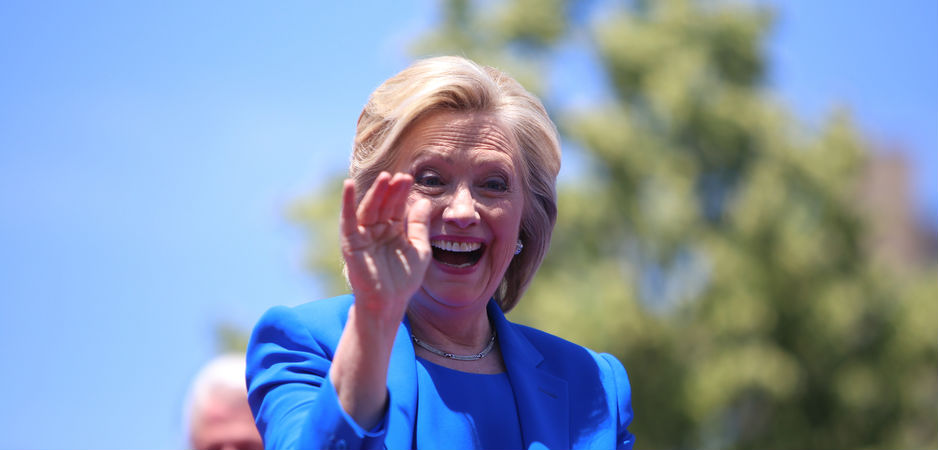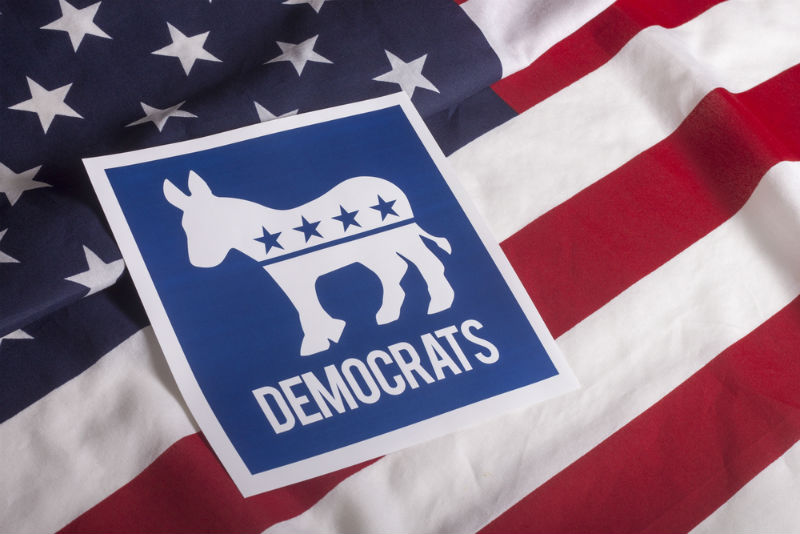Assessing the positions of Hillary Clinton, Bernie Sanders and Jill Stein in nine key areas shows significant weaknesses in Clinton’s proposed policies.
The polling data, media coverage and recent meetings highlight a key question: Which US presidential candidate is the best for minorities, women and all of us?
Off the list: Republicans, with their destructive policies against these groups and strongly biased views toward the wealthy and corporations.
In the Democratic field, Hillary Clinton leads, with particularly strong support among African Americans and women. Yet her support has steadily eroded, as Bernie Sanders gained 18% in a month and now leads in some New Hampshire primary polls.
Each voter will select a candidate in the primary and general elections based on many factors. One will be their policy positions as described in statements, on their website or exemplified throughout their career. Included will be an assessment of their potential to lead movements for change on issues they champion. Citizens will weigh other factors like perceived loyalty to corporations, other allies or specific donors. Also factored in may be their likeability, electability, identification, leadership ability and character.
The below evaluation of second-time Green Party presidential candidate Jill Stein, Hillary Clinton and Bernie Sanders suggests that Sanders and Stein hold the greatest promise as presidents.
A look at one phenomenon is telling. Democratic candidates Martin O’Malley and Bernie Sanders were interrupted a month ago by #BlackLivesMatter activists at a Netroots Nation event. O’Malley and Sanders, whose campaigns are broadly supportive of class issues relating to inequality, responded poorly. Yet both have since taken substantial steps to focus on racial inequities—Sanders through policies addressing four types of violence and O’Malley with a nine-page document: “A Reinvestment and Rehabilitation Framework for America’s Criminal Justice System” (compared here).
Clinton’s recent interaction with #BlackLivesMatter activists was scheduled. In this light, it was particularly unimpressive. The former secretary of state came across defensive and patronizing, saying, “I don’t believe you change hearts” (later backtracking on this) and then pushed the nascent movement—which has found major success in raising the awareness of police brutality—to devise its own solutions. Instead, one might have expected her to draw on her strong connections to African American community leaders and to think tanks, or simply mimic her competitors’ plans.
All current candidates benefit from President Barack Obama’s righting of our economic ship. Yet we remain in a state of crisis—with broad attacks on voter rights, defunding of reproductive health, a floundering war policy, decades of stagnating incomes, rampant underemployment and vicious racism and sexism. It feels like the turbulence of the 1960s is here today. Many of the challenges are the same. Energetic movements (such as Occupy and #BlackLivesMatter) have pushed candidates to broadly frame our challenges and boldly chart our future.
Nine key areas are assessed below, with three candidates’ positions evaluated mainly based on their websites. These issues affect all Americans. Although those particularly vulnerable to policies that magnify inequities and chip away at social programs are those with less power and privilege in our society: families and individuals who struggle or fail to afford life’s basics and are paid less for their work, or those who are targeted due to gender, race and/or sexuality.
1) Campaign financing
Due to inequality that virtually no one favors and the Citizens United and other court decisions, the wealthy and corporations have undue influence in shaping America. White, male-run institutions and wealth dominate our “democracy.” For example, fewer than 400 families have provided half the election financing. In response to the need for reform on this overarching issue, Harvard Law Professor Lawrence Lessig is crowdfunding a campaign to run as a referendum president. His first (and last) task would be getting pass the Citizens Equality Act of 2017. At the core of this bill is a substantial move toward publicly-financed elections.
Jill Stein does not take corporate money, and she favors public campaign financing and other steps for a representative democracy.
Bernie Sanders also does not accept corporate money. He has introduced a constitutional amendment to overturn Citizens United, and he voted for transparency. He promised that Supreme Court nominees will pledge to overturn that landmark Supreme Court decision.
Hillary Clinton has raked in Wall Street and large donor money. She has accepted—personally or through her charities—major donations from foreign governments and big corporations, including Goldman Sachs, while struggling to get grassroots donors. While her website seems to indicate support for similar priorities, its weird wording makes her role unclear: “The next president should appoint Supreme Court justices,” and undoing damage of Citizens United should end “even if it takes a constitutional amendment.”
2) Wall Street Reform
Seven years ago, Wall Street caused a financial crash that led to a doubling of the wealth gap between minorities and whites, which worsened even from 2010 to 2013. This was due in part to minorities having more assets tied up in their homes and their targeting for subprime loans (even after decades of predatory lending and unfair housing policies). The poor and middle-class also suffered from the crash-driven economic downturn. It was a major cause of a growing deficit that helped make the (misguided) case for damaging, counterproductive austerity measures targeting food stamps, public education and other spending with high social payoffs.
Bernie Sanders is teaming up with Senator Elizabeth Warren to co-sponsor a bill that would reinstate the Glass-Steagall Act to break up eight of America’s largest banks for improved economic stability. He has also sponsored a tax on financial transactions that would target the very wealthy.
Jill Stein also favors breaking up the big banks, and she supports publicly-run local banks and “fair taxation” of Wall Street.
Hillary Clinton, seemingly on the defensive, used Facebook to support cracking down on individual criminal bankers and expanding Dodd-Frank protections. But would those positions prevent the next crash or the further accumulation of wealth by those responsible for the Great Recession?
3) International Affairs and War
Expansive and expanding war where, increasingly, the world is our battlefield is a failed foreign policy. And we have seen major diplomatic wins under Secretary of State John Kerry: normalizing relations with Cuba and the Iran nuclear deal. Our wars have resulted in American weapons being used against us; drone bombings that create enemies; an illegal invasion that killed (proportionately) the equivalent of everyone in Los Angeles and New York; and violent extremism by the Islamic State, al-Qaeda and al-Shabab. Soldiers and their families serve and suffer. So too do these wars contribute to an ideology of violence against darker-skinned people. And the enormous expenditure redirects funds that could go toward inner city, job training and social programs.
Hillary Clinton has a history of hawkish behavior as secretary of state that she has continued in her run. She does support the Iran deal. She promotes accountability with China and boldness with Vladimir Putin, as well as alliances and partnerships on her website—although it is unclear specifically what this means. She supports Israel, saying: “If you challenge Israel’s security, you challenge America’s security.”
Bernie Sanders opposed the war in Iraq and argued for a limited US role. He recently gave an impressive foreign policy speech to a panel of economists that challenged Greek austerity, highlighted a history where democracies’ failures have led to the rise of the far right, and reviewed the role of Goldman Sachs and the plight of Puerto Rico. Yet he has a way to go to spell out other foreign policy priorities.
Jill Stein’s foreign policy would be grounded in “international law, human rights and diplomacy,” including limiting weapons’ sales overall and to human rights violators. She calls Israeli Prime Minister Binyamin Netanyahu’s government war criminals. She favors a 50% or more cut in military spending, in part due to its outsized role in discretionary spending that could be directed to other public priorities.
4) Racial Justice
Racial justice must address the over 5,000 individuals killed by over-militarized police departments this millennium—disproportionately black—with little accountability. #BlackLivesMatter has highlighted killings of African Americans and anniversaries of their deaths, and it has pushed for an end to such violence. But clearly, policies must go beyond providing basic bodily sanctity to promoting economic opportunity, restoring voting rights and destroying institutional barriers that have led to severe poverty.
And while this in no way the primary reason to address issues uniquely harmful to one community, models from the inner city have been exported into broader American sphere: subprime lending, urban poverty, misogynistic and violent music, low food quality, high crime, widespread drug use and police brutality.
After being confronted by #BlackLivesMatter activists, Bernie Sanders hired criminal justice advocate Symone Sanders as national press secretary and has released a plan to “[address] the four central types of violence waged against black and brown Americans”: physical, political, legal and economic violence. His website spells out the disproportionate effects on each: of force and steps to reforming policing institutions; of political barriers and obstacles to voting; of legal violence and prison system; and of economic inequity and poverty and opportunity. He is introducing legislation to eliminate for-profit prisons.
Jill Stein’s website is much less thorough—perhaps because of limited resources—and calls out an “end to policy brutality, mass incarceration and institutional racism.” She supports halving military spending, creating living wage jobs, “effective” anti-poverty programs and other policies. She deserves credit for endorsing policies consistent with peace and humanism, despite not explicitly and thoroughly addressing racial inequity.
Despite having much higher polling numbers with African Americans and ties to the community, Hillary Clinton seemed unprepared for a scheduled meeting with #BlackLivesMatter activists. She has broadly framed some issues with disproportionate traffic stops, criminal charges and prison terms and promotes policies, including mandatory body cameras. But overall, she appears weak on issues that she was expected to have been extraordinarily strong on.
5) Climate Change
Six years ago, world leaders pledged to respect science, indicating the world should warm no more than 2 degrees. The commitment was recently reaffirmed at the G7 meeting. Despite positive steps by President Obama, we are still currently on a path to apocalyptic climate change. It will disproportionately affect women and the poor, particularly in the absences of government policies to provide clean water, healthy food and shelter. Globally, about 60 million individuals were displaced in 2014, in part due to the climate, and we just experienced our hottest month.
The 2-degree target nationally could be reached simply by changing our food choices or our agricultural system. Building a wholly renewable energy infrastructure and ending extreme energy extraction—like the Alberta tar sands that would go through the Keystone XL Pipeline—would also be key, as would a widely touted carbon tax.
Jill Stein of the Green Party supports a “Green New Deal”: a transition to 100% wind, water and solar energy by 2030. She supports an end to mountaintop removal, fracking and tar sand extraction. She also supports ending use of GMO foods and pesticides till proven safe, and GMO labeling.
Bernie Sanders opposed the Keystone XL pipeline, supports divestment of fossil fuels and does not take contributions from these companies, and he sponsored a carbon tax in the Senate.
Hillary Clinton was until recently mostly mute on effective solutions, although she favored more fees and royalties on fossil fuel companies. Lately she has been bolder. She has announced her plans to put America on a path for every home to be powered by renewables by 2027, which has been rightfully lauded, but she has not pledging limit fossil fuels extraction which, absent other plans, will be necessary to meet the limit. She has spoken out against Arctic drilling.
6) Human Rights, Basic Services and Opportunity
In the rich nation on America, people struggle for life’s basics and economic opportunity. Housing, clean water, food and affordable health care are often a dream. The minimum wage is rarely a living wage, stripped down benefits have created what Jacob Hacker calls “The Great Risk Shift,” and predatory corporate schemes often go unchecked. While the Affordable Care Act has widened coverage, health care-related bankruptcies, unjustifiable and excessive pricing, and insurance errors continue to undermine affordability and access. Gun violence is common. Corporate influence over government, continued forces for greater inequality and climate change make these issues paramount.
We have experienced potentially one of the largest non-war time declines in public health, with half of all Americans are on two more medications as obesity and related diseases have dramatically increased. Polluted water and soil poisons our citizens, even as our oceans turn to “plastic soup” and slow down their circulation. Regulation of our food supply, labor market, and chemicals should protect the Earth’s sustainability and human rights. Yet consumers rarely know if their products are made through fair trade and sustainable practices.
Even as schools are shuttered in many inner cities and standardized tests are arbitrarily toughened, we fail to provide our students with a leading education. College debt tops $1 trillion, draining what could fund rent, savings or other investments.
Our transportation infrastructure is being starved of funds, with huge effort to privatize what have traditionally been government services, further harming the poor.
Jill Stein supports the creation of living wage jobs for all Americans through investments in sustainable agriculture, renewable energy and public transportation, and a $15 per hour minimum wage. She supports fair taxation on Wall Street, big corporations and the wealthy. She affirms the right to food, water, housing and utilities as economic human rights. She supports tuition-free education through college and an end to privatization of public schools. She also supports single-payer public health insurance.
As a Democratic socialist, Bernie Sanders is similarly supportive of basic human rights. He favors an increase in a living wage to $15 an hour (and he has fought for a higher minimum wage in several ways). He supports limiting the credit card interest rate to 15%, and funding higher education through a financial tax, as well as single payer health insurance.
Hillary Clinton’s website speaks of making college affordable, defending the Affordable Care Act and defending social security. But she has questioned what is a “good job” (even while working with those who have undermined the struggle to keep benefits and employment protections) and spoke of corporate profit sharing through tax credits, even as corporations aggressively outsource jobs and replace individuals with robots which many Americans hate.
While she cites the United Nations Declaration for Human Rights on her website, Clinton avoids addressing whether she endorses rights from Articles 23 and 25: to “just and favourable remuneration ensuring for himself and his family an existence worthy of human dignity, and supplemented, if necessary, by other means of social protection,” to join trade unions, and “to a standard of living adequate for the health and well-being of himself and of his family, including food, clothing, housing and medical care and necessary social services, and the right to security in the event of unemployment, sickness, disability, widowhood, old age or other lack of livelihood in circumstances beyond his control.”
7) #FemaleLivesMatter
Today, more women graduate college than men, and many lucrative professions are evenly matched at the entry level. Yet females in our society have it tougher, especially those experiencing other intersectionality.
An estimated one in five young women experience sexual assault on campus (with those not attending college facing more risks). Rape kits go untested for years. The workplace, too, is biased against women. The structure of the workplace is not geared to part-time work sought by two-thirds of women. Quality child care is often unaffordable or inaccessible. Women are paid less. In fact, some of the highest paid jobs (where women drop out) are devoted to weakening the US economy, hiding high fees and avoiding US taxation, shipping jobs to nations with weak protections for laborers and polluting our world. Eighty-hour workweeks are commonly cited in corporate taxation work, technology companies (like Amazon) and investment banking.
Reproductive rights are also under attack, with five states defunding Planned Parenthood. Few of the one in three women who have an abortion (and their partners) publicly share and affirm their decision, and politically we often paint a generally comfortable decision as one that is overwrought. Cultural violence against women, which is exponentially more intense than just a generation ago—whether through TV, pornography, movies, or video games—is rarely questioned.
These issues can be framed as the function of family or class or the economy. But the reality is that gender provides a unique vulnerability to violence and stifles opportunity. The candidates have not chosen to tackle issues associated with gender comprehensively to date.
Hillary Clinton wants to make “quality, affordable child care a national priority” and to “explore ways to enhance Social Security particularly for women.” She has said “America moves forward when all women are guaranteed the right to make their own health care choices.” She has highlighted issues of paid leave and favors passing the Paycheck Fairness Act.
Much of Jill Stein’s platform is humanist and supports sustainability, justice, peace and dignity, which would substantially benefit women. However, little deals directly with traditionally women’s issues other than to “expand women’s rights.”
Bernie Sanders highlights what he calls “real family values,” describing how there is no guarantee paid time off for new parents. He cites involvement in a bill to support 12-weeks paid family and medical leave and to provide ten days’ vacation time and paid sick leave.
8) Trans-Pacific Partnership and Other “Trade” Agreements
There are some striking similarities between war rationales and justifications for trade agreements: Don’t look at past history, we’re told, or what’s behind the curtain.
The secret Trans-Pacific Partnership (TPP)—a broad attempted expansion of corporate rights—has little to do with trade. It will likely increase climate change due to the investor state dispute clause, allowing companies to hold countries responsible in new international courts for profits lost due to environmental action, including those taken to meet climate goals. It could also outlaw “Buy American” policies to boost adoption of renewable energy. Politicians’ claims that it will boost American jobs are dubious, as previous unfair trade agreements resulted in the massive outsourcing of good jobs. It could worsen food safety, roll back reforms on Wall Street and increase surveillance. The next president will have significant power through fast track trade promotion authority to negotiate such treaties that can’t be amended by Congress.
Jill Stein wants to “replace corporate trade with fair trade agreements.”
Bernie Sanders rejects the TPP.
Hillary Clinton imposes criteria for approval including “national security,” although she acknowledges climate change is the “defining national security challenge of our time” on her website.
9) Partners and allies
Alliances matter, as do the records of touted allies. Partnerships can be looked at broadly. Relationships to those held up as heroes and allies say much. So too does funding taken from corporations, governments, groups or individuals, whether money is given to a campaign or a family endeavor.
Bill Clinton was famously called “the first black president” by author Toni Morrison, and the Clintons have strong ties with an older generation of black community leaders. But if Hillary Clinton wishes to run in part on Bill’s record, it’s sensible to look a little closer. Bill Clinton deserves some credit for the economic recovery. But he also promoted “anti-crime” legislation that contributed to mass incarceration, for which he has recently apologized (Hillary dodged the question at the #BlackLivesMatter meeting). Bill Clinton also pushed the Democrats to dismantle the Glass-Steagall Act and deregulated derivatives through the Commodities Future Modernization Act, which contributed to financial crash.
Hillary Clinton has served on the board of Wal-Mart, a company famous for outsourcing manufacturing and crushing unions and better-paying local companies. She worked with questionable donors and partners through the Clinton Global Initiative and Clinton Foundation. Her record is certainly heavy on traditional alliances through her work as a political first lady, senator and secretary of state, but it is one that feels weak on championing of social justice. A telling moment was during her meeting with #BlackLivesMatter activists, when she harkened back to her Children’s Defense Fund work but failed to highlight major recent accomplishments.
Bernie Sanders and Jill Stein do not appear to have such conflicts of interest, and their rejection of easy money and support for humanism makes their avowed priorities believable.
Today, one needs bold leadership. The evolving examples of Jill Stein and Bernie Sanders show promise of leading movements for sustainability and justice. Conversely, a campaign of extraordinary resources like Hillary Clinton’s has been slow to respond to the urgent challenges of now. The campaign feels anchored in our institutions, including corporate America, and our past. She responds to our present crisis in a manner that feels piecemeal and far from visionary. If she is reluctant to voice support now for major priorities affecting women, minorities, those who are both and all of us now, when will she?
Joseph de Maistre, a French diplomat, stated: “In a democracy, people get the government they deserve.” To get the president we deserve, let’s have protests, let’s have debates and let’s have accountability throughout the campaign lifecycle. It’s a competition for critical components of our electorate, without which the presidential election cannot be won. Democratic presidential candidates: Tell us what you will do for us. Earn our support.
Not demanding a true democracy and humanism shortchanges America. We sell out ourselves when we don’t push for our nation to fulfill its promise for individual security, opportunity and true happiness.
The views expressed in this article are the author’s own and do not necessarily reflect Fair Observer’s editorial policy.
Photo Credit: A. Katz / Juli Hansen / Danielfela / Shutterstock.com
 We bring you perspectives from around the world. Help us to inform and educate. Your donation is tax-deductible. Join over 400 people to become a donor or you could choose to be a sponsor.
We bring you perspectives from around the world. Help us to inform and educate. Your donation is tax-deductible. Join over 400 people to become a donor or you could choose to be a sponsor.
Support Fair Observer
We rely on your support for our independence, diversity and quality.
For more than 10 years, Fair Observer has been free, fair and independent. No billionaire owns us, no advertisers control us. We are a reader-supported nonprofit. Unlike many other publications, we keep our content free for readers regardless of where they live or whether they can afford to pay. We have no paywalls and no ads.
In the post-truth era of fake news, echo chambers and filter bubbles, we publish a plurality of perspectives from around the world. Anyone can publish with us, but everyone goes through a rigorous editorial process. So, you get fact-checked, well-reasoned content instead of noise.
We publish 2,500+ voices from 90+ countries. We also conduct education and training programs
on subjects ranging from digital media and journalism to writing and critical thinking. This
doesn’t come cheap. Servers, editors, trainers and web developers cost
money.
Please consider supporting us on a regular basis as a recurring donor or a
sustaining member.
Will you support FO’s journalism?
We rely on your support for our independence, diversity and quality.









Comment